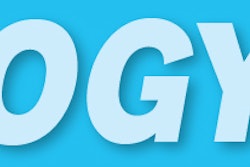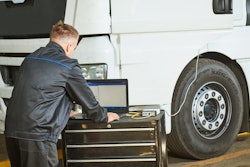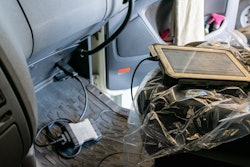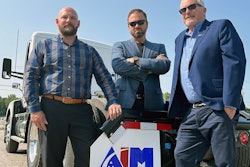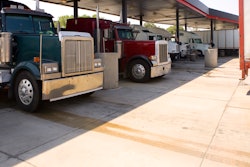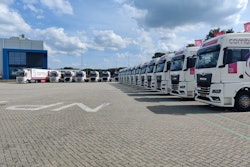The trucking industry is behind when it comes to digitization of our operations, but we’re catching up quickly. This is critical to the industry’s ability to be efficient and accurate in everything from billing to routing to the assigning of loads to carriers.
And as the industry digitizes, we need to speak one language with respect to terms, processes and protocols. This is especially true when it comes to bills of lading, which is why the National Motor Freight Traffic Association’s (NMFTA) Digital LTL Council has been working since 2019 to develop a now implemented (but still being perfected) industrywide standard for electronic bills of lading (eBOL).
Our eBOL standard is already delivering results for those who have implemented it. That number accounts for 15% of all LTL industry revenue and includes heavy hitters like Old Dominion Freight Line, Dayton Freight Lines, Estes Express, Southeastern Freight Lines, and many others. On the 3PL side, we recently published a case study about the impact C.H. Robinson is experiencing just from not having to make phone calls to chase down PRO numbers, or ask about packaging type, or how many pallets are being used.
What’s critical now is that the industry comes together to embrace common protocols and common terms. Others in the industry – companies we know well and respect – have also endeavored to develop their own standards.
NMFTA is a nonprofit member-based organization with its roots in setting standards. We don’t create things like eBOL standards because we’re concerned about monopolizing the market with them. We do the heavy lifting of establishing these standards so the carriers, the 3PLs, and the shippers can focus on running their businesses.
Imagine if one of the Big Four accounting firms decided to come up with its own version of “generally accepted accounting principles.” There’s a reason those principles have been generally accepted for decades. They allow both the accounting firms and their clients to understand exactly how things are going to be done.
Granted, the Digital LTL Council’s eBOL standard hasn’t been around for decades. Its early impact on the market is delivering exceptional results, and we continue to refine and tweak it as feedback from the industry guides us to do so.
But consider the comprehensive method by which the standard was developed. The Digital LTL Council was founded in 2019 after a meeting of LTL carriers, 3PLs and tech firms who realized they all faced the same problems. They knew they would get better results if they worked together, rather than coming up with 15 or 20 solutions to the same challenges. But it was an extremely heavy lift for these industry stakeholders to complete the task in addition to their full-time jobs.
When NMFTA assumed administration of the Digital LTL Council in 2022, we were able to commit our organization’s resources to completing the standard and to helping the industry achieve implementation. As we did, we recognized that our organization’s expertise in cybersecurity would also play a critical role in helping the industry get this right.
The standard we developed came from the input of shippers, carriers, 3PLs and technology partners – as well as the critical coordination and leadership of NMFTA staff. They all wanted a standard that would promote greater digital connectivity, fewer manual touches and automated tracking of information. They also knew it was critical to harmonize terms and protocols so everyone in the industry would operate in the same fashion.
More is coming, by the way. The Digital LTL Council has started developing an entire roadmap to standardize and digitize the LTL data stream from creation to cash. It will have downloadable APIs for everything from rate quotes and pickup requests to cargo losses and damage claims. Just as we’ve done with the eBOL standard, NMFTA is ahead of the game getting the LTL transport industry digitized.
Digitization is about efficiency, accuracy and cost-saving. The unfortunate nature of the digital world is that digitizing also comes with the threat of various cyberattacks on enterprises and assets. Because we have our own dedicated cybersecurity team, we have been able to help put the industrywide eBOL standard in place while ensuring the companies in the industry are protecting their right flank against would-be cyberattackers.
We have done the work, and we approached it in the most inclusive manner possible for the industry. We believe the rest of the trucking industry can easily embrace and adopt this same standard, especially since the LTL process is almost always more complicated than its truckload equivalent. If the standard works for us, it can work for anyone.
But at the very least, it is critical that we achieve harmony on the things we have in common. As other players in the industry consider developing similar but separate standards, we still intersect in so many places. We should work together to ensure we are harmonized in those common areas so the end user doesn’t have to learn or adopt multiple standards, but as much as possible, one universal standard.
Any time an industry is experiencing a radical change, as the trucking industry now is with digitization, it’s critical that people understand the protocols to follow. That’s why we’ve been working all this time to have the best possible standard ready to go – and now it is.
We are happy to share it with the entire trucking industry, and we invite everyone to make use of it. Our only interest is a safe, efficient and profitable industry. This is the way to get there.
To learn more about the Digital LTL Council and the eBOL standard, visit www.nmfta.org.



